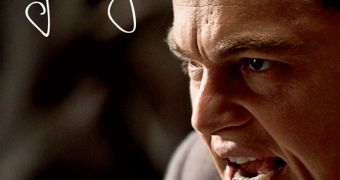The idea of making a biopic is to offer the world at large, movie audiences in the case of “J. Edgar,” an insight into the hidden world of a public figure. Clint Eastwood could have made his film either by tackling the topic of Hoover's personal life or of his career / public persona – and, yet, he opted for neither.
Because of this, a story with as much dramatic potential as this has, a project with talent to boot (Leonardo DiCaprio, Armie Hammer, Naomi Watts, Jude Dench, Eastwood himself) and plenty of interest from viewers, barely manages to scratch the surface.
“J. Edgar” purposes to be the story of the infamous, controversial director of the Federal Bureau of Investigation, the man who lasted at the helm for over 4 decades, under 8 different presidents, witnessing some of the most life-altering events in American history.
A cold and calculated man, Hoover generated as much press during his lifetime as he did afterwards – yet none of that controversy, debate, fire transpires into the way Eastwood tells his story.
On a script by Oscar-winner Dustin Black (“Milk”), “J. Edgar” kicks off in 1919, when Hoover, an ambitious, highly intelligent and somewhat paranoid young man, is appointed the head of a new intelligence division called the Bureau of Investigation – only years later it will become Federal.
He will remain the director of the FBI until his death in 1972, literally becoming, according to many, one of the most powerful men in the US, mostly because of a stash of secret files he made sure to create on everyone and anyone he considered a potential enemy or threat.
The movie alternates between flashbacks and present-day scenes, taking smaller or giant leaps to and fro – a technique most necessary considering the huge amount of time and, most importantly, the events it had to cover.
Each period is easily distinguishable by its tone and, of course, DiCaprio's hair and makeup. The reason why they're chosen is somewhat baffling because the film fails to explain the relevance of some in relation to the others.
Armie Hammer is Clyde Tolson, the tall, charming and apparently totally enamored FBI agent who ends up as Hoover's sidekick, close associate and confidante until the end.
Another remarkable addition to the cast is that of Dame Judi Dench as Hoover's mother: she gloriously portrays the religious fanatic with ideas of grandeur she hopes to see come true through her son who will, hopefully, restore the family to a long-forgotten state of grace.
She's strict, uptight and royal. She is also the force behind many of Hoover's decisions in early years.
Naomi Watts is Helen Gandy, a young and lively secretary to whom Hoover proposes on the third date, on what might seem like a whim but is proved to be a cold-blooded calculation. She settles instead for being his lifetime loyal personal assistant.
These four are the only constants in the plotline that spans to include the most remarkable events in American history, from the anarchist bombings of 1919, the Lindbergh kidnapping (also called the “crime of the century”) and how it shaped the future of the FBI, the Communist scare, the making of the cult of the FBI agent, the JFK assassination and the creation of the secret, terribly damaging personal files.
Amazingly, throughout it all, Hoover doesn't change: neither for the better nor for the worse, which is somewhat impossible in real life.
As noted above, “J. Edgar” could have played either way: it could have portrayed Hoover's personal life, or it could have had a better look at his public persona and how he came to be the one man even the President feared.
In the first case, it should have gotten into the specifics of his alleged gay relationship with Clyde, his reported cross-dressing and his social awkwardness, his struggle to be himself, a gay man, when, openly, he was a racist and a homophobe.
In the latter, “J. Edgar” could have offered a gripping insight into the story of a powerful man and the corners he cut to become one, how he shaped history and the kind of ideas that motivated him to do the things he did, some of them controversial to this day.
Perhaps fearing offense, Eastwood chooses to do neither in his film. The overall impression is that he simply picked out more or less random facts, laid them in front of the viewer and then left the room.
The script, riddled at times with some of the most cringe-worthy clichés, obstinately refuses to commit to anything, even the smallest detail, as if Hoover was not a man of skin and bone, but a wax statue that, obviously, bears only a semblance of life.
Critics agree that, while the intention and the goal of “J. Edgar” are nothing short of admirable, it fails in execution – not necessarily because it lacks the means to do it, but because it lacks expertise.
“J. Edgar” runs for 137 minutes and has seen limited release in the US in November 2011. It's now playing in theaters all across Europe, and will conclude its run in Hong Kong on February 2 and Turkey on March 2, 2012.
The Good
DiCaprio is very convincing as Hoover, even though his accent grates a bit at the beginning; as also is Hammer, though many probably believed he wouldn't be up for the challenge.
Watts is charming and on-point as always, albeit underused.
The Bad
Makeup is bad: on DiCaprio, it looks acceptable, even though certain scenes requiring more emotion make it obvious that it's a mask and he's trapped inside it. Hammer and Watts' though are risible, which begs the question of why such a difference was made in the first place.

 14 DAY TRIAL //
14 DAY TRIAL // 





